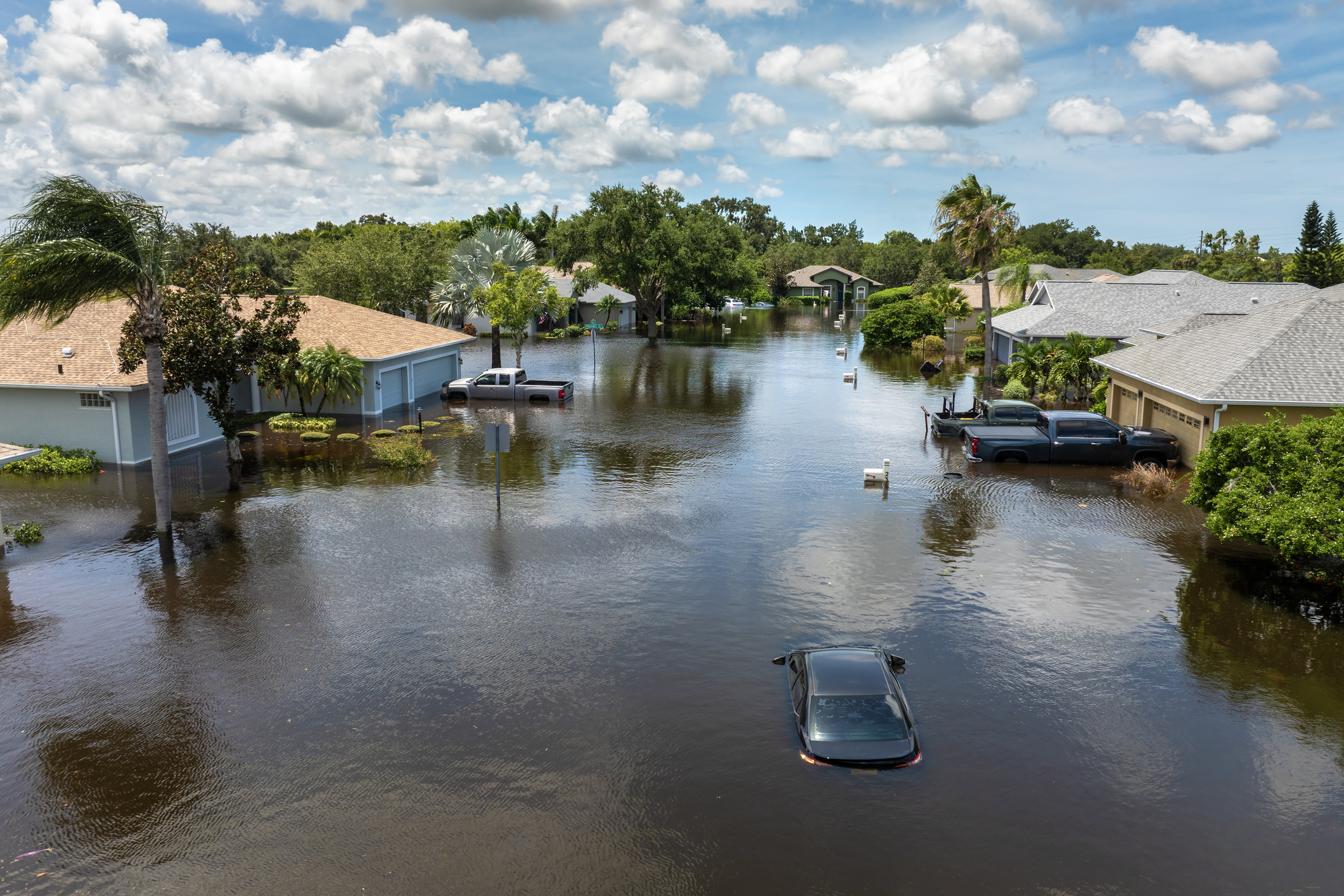A New Guide to Choosing Where to Retire
Cost, culture and climate will all come into play.


Profit and prosper with the best of Kiplinger's advice on investing, taxes, retirement, personal finance and much more. Delivered daily. Enter your email in the box and click Sign Me Up.
You are now subscribed
Your newsletter sign-up was successful
Want to add more newsletters?
The years leading up to retirement are full of decisions. Will you replace your days at the office with traveling, volunteering or lying on the beach with a book? When should you start claiming Social Security? Do you want to pick up a part-time job? And here’s yet another important choice you’ll have to make: whether you’ll relocate and, if you do, where you’ll land.
If you’re contemplating a post-retirement move, you’re not alone. Roughly one-third of retirement savers don’t think it makes financial sense to stay put once they say goodbye to their job, and about one in six say they’ll be forced to relocate to a more affordable place, according to a recent survey from the Nationwide Retirement Institute. While costs are a critical factor, you’ll also need to think about access to quality health care and the availability of activities you love, just to name a couple of considerations.
States such as Florida, Arizona, South Carolina and Texas are go-to spots for new retirees. These sunny locations have offered a relatively affordable cost of living and friendly tax environment, as well as plenty of opportunities to hike, golf and swim.
From just $107.88 $24.99 for Kiplinger Personal Finance
Become a smarter, better informed investor. Subscribe from just $107.88 $24.99, plus get up to 4 Special Issues

Sign up for Kiplinger’s Free Newsletters
Profit and prosper with the best of expert advice on investing, taxes, retirement, personal finance and more - straight to your e-mail.
Profit and prosper with the best of expert advice - straight to your e-mail.
But while the warm regions of the South and Southwest may make sense for some retirees, they have their downsides, too — especially as wildfires, droughts and other natural disasters become more widespread and occur at greater frequencies than they did in the past.
That may be good reason to look beyond the most popular destinations. The decision involves not only weighing the pros and cons of the locations you’re considering but also your personal preferences.
Is it important to you to be able to pop into a big city to catch a theater performance? Are you a foodie? Do you like to experience some snowfall? How close do you want to be to an international airport? If your children live far away, you may want to move closer to them. If you have a furry friend or are planning to get one, you may want a yard.
“Location will determine a lot of aspects of your well-being in retirement,” says Mo Wang, University Distinguished Professor at the University of Florida’s Warrington College of Business, where he studies retirement. As you evaluate your choices, investigate the following areas.
Local tax rates
Taxes can take a significant bite out of your retirement income, so it makes sense to consider which states are tax-friendly for retirees. For instance, there are 13 states that don’t tax traditional retirement income such as Social Security benefits and distributions from retirement savings accounts or pensions, including Nevada, Florida and Illinois. And if you find yourself in Alaska, Florida, Nevada, New Hampshire, South Dakota, Tennessee, Texas or Wyoming, you won’t pay any state income tax at all.
You’ll also want to account for property taxes, which can vary widely by state. A Tax Foundation analysis of property taxes paid as a percentage of housing values — also called effective tax rates — found that while effective tax rates were as high as 1.83% in Illinois and 1.77% in New Jersey in 2023, they were just 0.32% in Hawaii and 0.36% in Alabama. (Those rates can vary greatly from county to county within a state, too: Jefferson County in Alabama had an effective property tax rate of roughly 0.6% as of 2023, while Choctaw County, in the same state, had one closer to 0.18%.)
For retirees hoping to pass down money or property to their children or other heirs, estate taxes are also part of the equation. Currently, federal estate taxes don’t affect most people; in 2025, federal taxes kick in on estates worth $13.99 million or more for individuals, or $27.98 million for married couples. (Recently, these thresholds, which the 2017 Tax Cuts and Jobs Act put into place, were set to expire at the end of this year and fall to about half their current level in 2026. But in a tax bill Congress was contemplating at press time, the higher exemption levels would be made permanent.)

Twelve states plus Washington, D.C., however, have their own estate taxes, and six states impose inheritance taxes, according to the Tax Foundation. Marylanders face both an estate and an inheritance tax. (Estate tax is paid by your estate based on the total value of all your assets when you die, while inheritance tax is paid by the heirs who receive an inheritance from you, based on the amount they get.)
In many cases, these states have lower exemption levels than the federal government. Oregon, for example, taxes assets worth more than $1 million. Arizona, Colorado and Georgia are among the majority of states that don’t have the so-called death tax.
And don’t forget about sales taxes. While some states — Alaska, Delaware, Montana, New Hampshire and Oregon — don’t have a sales tax, others will take a large chunk when you make a purchase. Local governments (cities and counties) can also impose their own sales taxes. Louisiana and Tennessee have the highest average combined state and local sales tax rates at 9.56% and 9.55%, respectively, according to the Tax Foundation.
So while a state may look attractive for low tax rates in one area, it could be collecting a hefty sum in another, explains Charles Sachs, a financial adviser and chief investment officer at Imperio Wealth Advisors in Miami. You can look at our list of the most tax-friendly states for retirees, based on which ones don’t tax retirement benefits and, of those, which had the lowest median property taxes. Mississippi, Tennessee, Wyoming, Nevada and Florida snagged the top five spots.
Health care
Be sure to evaluate health care options. Start by identifying the nearest large medical facility and researching its services to make sure it has what you need.
This is especially important if you use a Medicare Advantage plan, because these private plans typically require beneficiaries to use in-network physicians and hospitals. To learn more about the plan’s network, you can typically check its website or call customer service. Or contact health providers you want to use to ask whether they accept your plan.
If you expect to spend only part of the year in your new retirement location, it’s worth considering a multi-location plan that will cover you in more than one state. Original Medicare provides coverage anywhere in the U.S. as long as the provider accepts it.

Don’t forget to assess the quality of care at local facilities, too. With Medicare’s compare tool, you can look up hospital ratings on a five-star scale, scoring how well facilities perform in areas such as treatment of heart attacks and safety of care. You can also see patient-survey ratings. The tool can help you find doctors, nursing homes, home health services and more in a geographic area, too.
When deciding where to call home next, it’s also essential to think about something that isn’t necessarily top of mind now but could become important later: long-term care, including proximity to assisted-living facilities.
Choosing a location that wouldn’t require you to make another big move should you need this type of care will save you time, money and stress down the road, says Melissa Caro, a financial planner based in New York City and founder of My Retirement Network, a free digital media platform focused on financial literacy and retirement topics.
Lifestyle suitability
Try to envision the place that embodies your dream retirement. If you love the hustle and bustle of a city full of theaters, museums and shops, you’ll probably want to make sure you’re in — or at least close to — a major metropolitan area with solid public transportation. But if you feel more at home living on a quiet street and hopping in a car for all your errands, a suburban or rural neighborhood probably makes more sense.
Visit any potential retirement destination that interests you at least a few times — and during different seasons. “It’s always wise to spend extended time in a new area rather than just visiting for a week or so,” Sachs says. “Many issues will present themselves after you’ve been exposed to a new area over time.”
For example, you may find that you don’t feel safe walking around a neighborhood at night, or there may be a lack of restaurants that serve your favorite type of cuisine.
Especially if you plan to travel frequently, check how close you’ll be to an international airport and/or train stations. Consider your proximity to loved ones. If all your family is on the West Coast but you’re thinking about moving to a southern state because it’s cheaper, not only will you see less of your relatives, but the costs may also even out once you factor in the price of flights back for visits.
And as you age, you may need assistance in ways you don’t right now, so it’s worth thinking about whether you’ll choose a location that’s close to your family.
Climate risks
It’s no surprise that many retirees ditch snow and cold weather for a warmer year-round climate once they have the flexibility to do so. Places such as Florida, Arizona and southern California have become in-demand retirement locations in part because they provide an escape from harsh winters.
But as appealing as those locations are, they also face growing threats related to climate change. In Florida, for instance, residents experience six months of hurricane season. Last year, Hurricane Milton ripped across the Sunshine State, causing floods and leaving more than 3 million homes and businesses without power. Meanwhile, California had already experienced roughly 1,300 wildfires in 2025 as of mid May, according to the California Department of Forestry and Fire Protection.
Natural disasters are costly, and those costs are only rising: The five-year average disaster cost per capita was around $150 per U.S. resident in the early 2000s when adjusted for inflation, but it jumped to more than $400 per person in the late 2010s and has increased since then, data from the National Oceanic and Atmospheric Administration shows.

Protecting your home against these disasters is getting more costly, too — especially in coastal areas. Traditional retirement hotspots such as Florida, coastal South Carolina and parts of California are facing escalating insurance costs and reduced availability, says Caro.
Not only are premiums increasing, but in many areas, private insurers are exiting the space entirely, leaving retirees with limited, expensive state-run options or none at all. A 2024 report from the Congressional Budget Office, for example, said that in recent years, homeowners have found coverage costly or difficult to obtain in California’s wildfire-prone areas.
“I would argue that insurance risk has become just as important a consideration as taxes when choosing where to relocate,” Caro says. “In some cases, it may be the deciding factor.” Having some flexibility on where you choose to live within a city or region may help you lower the risk. An inland home may be less likely to suffer damage in a disaster than one directly on the water, for instance.
Caro says that one of the most effective ways to gauge insurance costs and availability is to speak with a local insurance broker in the area you’re considering. Or start with a home insurance calculator. With NerdWallet’s calculator, for instance, you can enter a location’s zip code to see local average rates for homeowners insurance.
Sense of community
When searching for your dream retirement location, you also want to consider the feel of the place. Does it have what you’ll need to be happy as you age?
The first step is to think about how you plan to spend your time in retirement. Will you seek out part-time work or opportunities to pitch in at local charities? Would you like to have a schedule of social activities? Wang, of the University of Florida, says a lot of preretirees plan to spend their retirement traveling but forget that eventually they have to come back and settle into a daily routine.
“When people retire, they lose structure for the day,” Wang says. “If you’re working, you know when you will get up, what routes you’ll take and what you’ll do during the day. When you retire, all those structures need to be resettled, and that often becomes a hurdle for a lot of people.”
So consider who you’ll spend your time with and what you’ll do together. If a location has excellent health care but no farmer’s markets, walking clubs, libraries or other spaces that give it a sense of community, it may not be the best spot for someone who wants to be socially active. If you enjoy regular lunches out with friends but you have to drive an hour to find desirable restaurants, or you love to golf but there aren’t courses in the area, you probably want to look elsewhere.

Wang says people tend to enjoy a higher level of psychological well-being when they volunteer at their church or in another part of their community, so considering whether you’ll be able to do so in your new home before you move there is vital.
In short, get a sense of what your schedule would be. Knowing what you’ll do when you move will remove uncertainty from your life and help ensure you’re not one of the 34% of adults ages 50 to 80 who, according to the University of Michigan’s National Poll on Healthy Aging, report feeling isolated from others.
Factor all these activities and social events into your financial planning and budgeting for retirement, and make sure you’ll be able to maintain your schedule for the long term.
“You can find a really nice place to live, but if you can only afford to stay for five years, then what happens afterward?” Wang says. “Financial planning is very important, and we see peoples’ psychological well-being drop very quickly if they encounter financial issues in retirement.”
Note: This item first appeared in Kiplinger Personal Finance Magazine, a monthly, trustworthy source of advice and guidance. Subscribe to help you make more money and keep more of the money you make here.
Related Content
Profit and prosper with the best of Kiplinger's advice on investing, taxes, retirement, personal finance and much more. Delivered daily. Enter your email in the box and click Sign Me Up.

Mallika Mitra is an experienced business and financial journalist. In addition to Kiplinger, her work can be found in Barron's, CNBC, Bloomberg News, Bankrate, USA Today and more. She was previously the investing editor at Money where she wrote a weekly newsletter on stocks, bonds, cryptocurrencies and more.
-
 Why Some Michigan Tax Refunds Are Taking Longer Than Usual This Year
Why Some Michigan Tax Refunds Are Taking Longer Than Usual This YearState Taxes If your Michigan tax refund hasn’t arrived, you’re not alone. Here’s what "pending manual review" means and how to verify your identity if needed.
-
 If You'd Put $1,000 Into Caterpillar Stock 20 Years Ago, Here's What You'd Have Today
If You'd Put $1,000 Into Caterpillar Stock 20 Years Ago, Here's What You'd Have TodayCaterpillar stock has been a remarkably resilient market beater for a very long time.
-
 Good Stock Picking Gives This Primecap Odyssey Fund a Lift
Good Stock Picking Gives This Primecap Odyssey Fund a LiftOutsize exposure to an outperforming tech stock and a pair of drugmakers have boosted recent returns for the Primecap Odyssey Growth Fund.
-
 Why Your Pet Should Be In Your Estate Plan
Why Your Pet Should Be In Your Estate PlanIncluding your wishes in your will or in a pet trust can ensure proper care when you can’t provide it.
-
 How to Find Joy and Meaning When You Want to Retire — But Can’t Yet
How to Find Joy and Meaning When You Want to Retire — But Can’t YetFor Gen X, delaying retirement can be an opportunity to pilot-test your second act, plan for your inheritance and structure trusts for your kids.
-
 5 Retirement Myths to Leave Behind (and How to Start Planning for the Reality)
5 Retirement Myths to Leave Behind (and How to Start Planning for the Reality)Separating facts from fiction is an important first step toward building a retirement plan that's grounded in reality and not based on incorrect assumptions.
-
 I'm a Financial Adviser: Silence Is Golden, But It Hurts Your Heirs More Than You Think
I'm a Financial Adviser: Silence Is Golden, But It Hurts Your Heirs More Than You ThinkTalking to heirs about transferring wealth can be overwhelming, but avoiding it now can lead to conflict later. Here's how to start sharing your plans.
-
 QUIZ: Are You Ready To Retire at 55?
QUIZ: Are You Ready To Retire at 55?Quiz Are you in a good position to retire at 55? Find out with this quick quiz.
-
 Will Your Children's Inheritance Set Them Free or Tie Them Up?
Will Your Children's Inheritance Set Them Free or Tie Them Up?An inheritance can mean extraordinary freedom for your loved ones, but could also cause more harm than good. How can you ensure your family gets it right?
-
 I'm a Financial Adviser: This Is the Real Key to Enjoying Retirement With Confidence
I'm a Financial Adviser: This Is the Real Key to Enjoying Retirement With ConfidenceA resilient retirement plan is a flexible framework that addresses income, health care, taxes and investments. And that means you should review it regularly.
-
 How Medicare Advantage Costs Taxpayers — and Retirees
How Medicare Advantage Costs Taxpayers — and RetireesWith private insurers set to receive $1.2 trillion in excess payments by 2036, retirees may soon face a reckoning over costs and coverage.